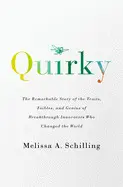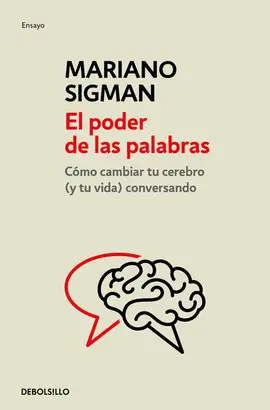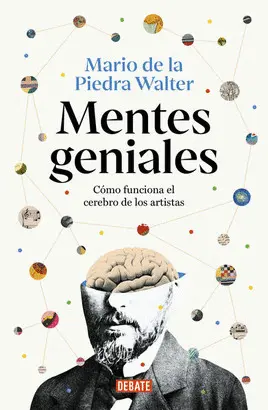- Editorial:
- PUBLIC AFFAIRS
- Año de edición:
- 2019
- Materia:
- Psicología
- ISBN:
- 978-1-5417-2453-2
- Páginas:
- 336
QUIRKY
THE REMARKABLE STORY OF THE TRAITS, FOIBLES, AND GENIUS OF BREAKTHROUGH INNOVATORS WHO CHANGED THE WORLD
MELISSA A SCHILLING
The science behind the traits and quirks that drive creative geniuses to make spectacular breakthroughs
What really distinguishes the people who literally change the world--those creative geniuses who give us one breakthrough after another? What differentiates Marie Curie or Elon Musk from the merely creative, the many one-hit wonders among us?
Melissa Schilling, one of the world's leading experts on innovation, invites us into the lives of eight people--Albert Einstein, Benjamin Franklin, Elon Musk, Dean Kamen, Nikola Tesla, Marie Curie, Thomas Edison, and Steve Jobs--to identify the traits and experiences that drove them to make spectacular breakthroughs, over and over again. While all innovators possess incredible intellect, intellect alone, she shows, does not create a breakthrough innovator. It was their personal, social, and emotional quirkiness that enabled true genius to break through--not just once but again and again.
Nearly all of the innovators, for example, exhibited high levels of social detachment that enabled them to break with norms, an almost maniacal faith in their ability to overcome obstacles, and a passionate idealism that pushed them to work with intensity even in the face of criticism or failure. While these individual traits would be unlikely to work in isolation--being unconventional without having high levels of confidence, effort, and goal directedness might, for example, result in rebellious behavior that does not lead to meaningful outcomes--together they can fuel both the ability and drive to pursue what others deem impossible.
Schilling shares the science behind the convergence of traits that increases the likelihood of success. And, as Schilling also reveals, there is much to learn about nurturing breakthrough innovation in our own lives--in, for example, the way we run organizations, manage people, and even how we raise our children.








